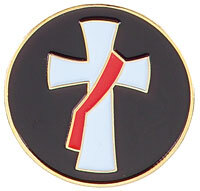Our Diocese recently ordained 4 permanent deacons and one transitional Deacon. If you were wondering, "What's the difference?", you've come to the right place.
Who are deacons?
In the Catholic Church, "the clergy" consists of three groups of ordained ministers: bishops, priests, and deacons. While all members of the church are called to minister to others by virtue of their baptism, some Catholics are also ordained to specific forms of ministry to serve the rest of the Church. A deacon’s ministry includes: service of the word, service of liturgy, and service of charity, including justice and pastoral outreach. The first deacons began serving the church at the time of the Apostles. The title "deacon" comes from the Greek word diakonos, which means "servant." A deacon is ordained by the bishop into the Order of Deacons (commonly referred to as the diaconate). He is publicly and permanently configured to Christ the Servant and lives a life of service within the Church and the community.
Are deacons a new ministry in the Roman Catholic Church?
The order of deacons was present in the very early Church as the bishops ordained people to assist with the temporal needs of the church and the charitable needs of the people. These permanent deacons were involved with a variety of ministries within the life of the early church. For a number of reasons over the years, the diaconate evolved into a transitional status on the way towards priestly ordination. At Vatican II, the Church restored the permanent diaconate as an active ministry so as to return to the fullness of orders of the early Church. The Diocese of Green Bay began ordaining permanent deacons in the early 1970’s and currently has over 140 ordained deacons, as well as many individuals in formation.
What is the difference between permanent and transitional deacons?
There is only one diaconate. All priests are first ordained as deacons. For them, the diaconate is transitional as they also go on to be ordained priests. Permanent deacons are what the name implies. They are ordained for a life-long commitment to a ministry of service as deacons. He may be married and most often holds primary employment outside the church, while also living a life of service to the church. The deacon is a member of the clergy but lives his vocation primarily in the day to day world of family life, workplace, and community.
What does a deacon do?
The ministry of the word includes the proclamation of the Gospel, preaching, catechesis, and evangelization. The ministry of the liturgy includes such things as assisting at Mass, offering Communion services if a priest is absent, presiding at baptisms and marriages, presiding at funeral services, and presiding at Benediction and other devotional services. The ministry of charity, justice and pastoral outreach includes such things as reaching out to those who are poor or in need, being present to those who are on the margins of society, serving those who are lonely or hurting in any way, advocating for the dignity of all people, and encouraging and facilitating the service work of others.
Who is eligible to apply for formation as a deacon in the diocese?
Men who are residents of the diocese and between the ages of 30 and 55 may apply. Applicants must be recommended by their pastor or pastoral leader and have the support of the parish community; have a history of parish involvement, service to others, and leadership capabilities; be a confirmed member of the Roman Catholic Church and in good standing in the church; be in good physical and emotional health and have a stable work history. A married applicant must have a stable and happy marriage and his wife and children must support his interest in the diaconate. Single applicants must be willing to commit to celibacy as a lifestyle. Applicants must have at least a high school diploma or its equivalent and be able to take college level courses. Some college background is preferred.
What qualities should a person have who is interested in the diaconate?
Persons interested in being considered for the diaconate should be compassionate people who enjoy serving others. They are to be strongly spiritual and prayerful individuals who love the Church and experience a strong call to follow God’s will. They must relate well with a wide variety of people and be able to collaborate with others. Good leadership and communication skills are necessary. It is also important to have good time management skills in order to integrate discernment, theological study, spiritual formation, and ministry along with family and work responsibilities.
What does formation for the diaconate consist of and how long does it take?
Persons interested in the diaconate are required to initially meet with the diaconate director to explore their interest and determine whether they meet the prerequisites for application. Once approved for application, the inquirer completes application materials and a psychological evaluation. Upon acceptance into the program, the applicant completes a year of aspirancy after which a determination is made whether to move on to the candidacy stage. Candidacy consists of another four years of formation during which the candidate takes courses in scripture, theology, liturgy, pastoral care, canon law, homiletics, etc. Candidates are also involved with spiritual direction, diaconate community gatherings, retreats, service ministry in their parish and community, and meetings with diaconate staff, the formation board and the bishop. Spouses are required to take part in some aspects of the process and may participate in other aspects voluntarily.
Interested?
If you feel a tug towards this kind of ministry, or if you just want to learn more:
Deacon Paul Grimm Diocese of Green Bay PO Box 23825 Green Bay, WI 54305-3825
